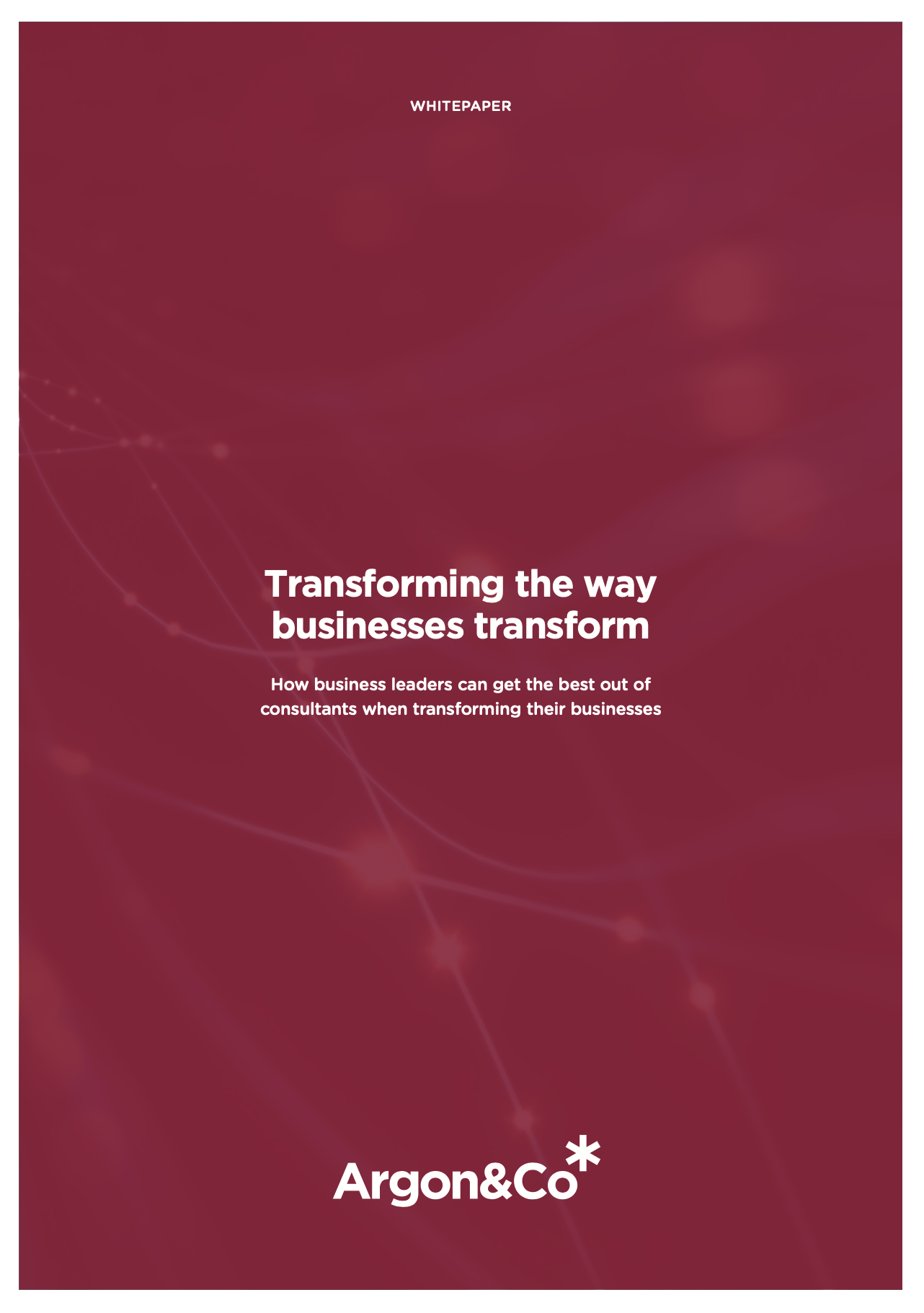Transformation is a word frequently used in business. Companies need to transform to improve performance and develop sustained competitive advantage. To do this effectively, external consultants are often used to make the desired transition happen.
According to Stuart Williamson, Principal at global supply chain consultancy Crimson & Co, as business transformation projects become more complex, simply relying on the technical reputation of a consultancy is no longer a guarantee for success. Instead, companies must be prepared to delve deep into the capabilities of any external party to be sure that they possess the necessary attributes and skills to carry out a transformation project as effectively as possible.
Stuart suggests that people capabilities are critical when selecting a consultancy, and the relationship needs to be more than just transactional. It needs to be built on empathy, trust and humility:
“Board and C-level executives are increasingly looking for support to optimise business performance, covering leadership, strategic direction, and practical implementation. Many are unable to do this on their own and therefore enlist outside support. The reality though is as the need to transform becomes more complex so is the need to understand and engage with the people aspects delivering transformation.

“Traditionally, consultants have leveraged tried and tested methods to support transformational projects but as these projects are increasingly complex and multifaceted, this experience on its own is not enough.”
Stuart continued: “Increasingly, the need to be ‘people focused’ is essential in forming effective relationships, built on empathy, trust and humility – in action this might be the ability to bring in technical solutions, ‘the what’; driving transformational human relationships ‘the how’; and how they work with the entire organisation to empower transformation, ‘the why’. Typically, this centres around three roles – the transformation partner, the coach and the mediator.
The transformation partner places a greater emphasis on strong change management skills. Traditional transformation processes often fail as the executive teams remain rigid within traditional improvement programmes which are safe and familiar. For those looking to breakdown these barriers a consultant must have the ability to alter mindsets and address problems in which there is no immediate solution. There is a need for strong, intimate relationships built on credibility and authenticity, not purely contractual arrangements. Being able to demonstrate these qualities will instil trust and support leaders in navigating new transformations.
“The role of the coach is to push and motivate people outside of their comfort zone. Engaging in any transformation can be unsettling, leading to resistance or discomfort from an organisation. An effective consultant should adopt a ‘coach-like’ approach to prepare them for the challenges of transformation and support them along the way. Their flexibility and awareness of uncertainty should instil confidence in leaders and their teams to trial new ways of working and experiment with new ideas.
“Finally, an effective transformation consultant should be able to address the considerations and concerns of an entire organisation, essentially acting as a transformation mediator, not only to the executive team. They can empathise with people across organisations to instil a collective self-confidence; inspiring people at every level to challenge the status quo – play their part, get on board and even lead change. It is this third and final element, of aligning people and integrating new practices, that is crucial to sustaining transformation.”
Stuart concluded: “The future for transformation is to optimise the balance between traditional technical change approaches and introducing and developing adaptive change skills. Consultants enlisted to support this need to maximise their impact by teaming up with people that can articulate ‘why’, people who know ‘how’ and people that can ‘do’. This will be the key to leading and delivering successful long-term transformation programmes for the future.”


